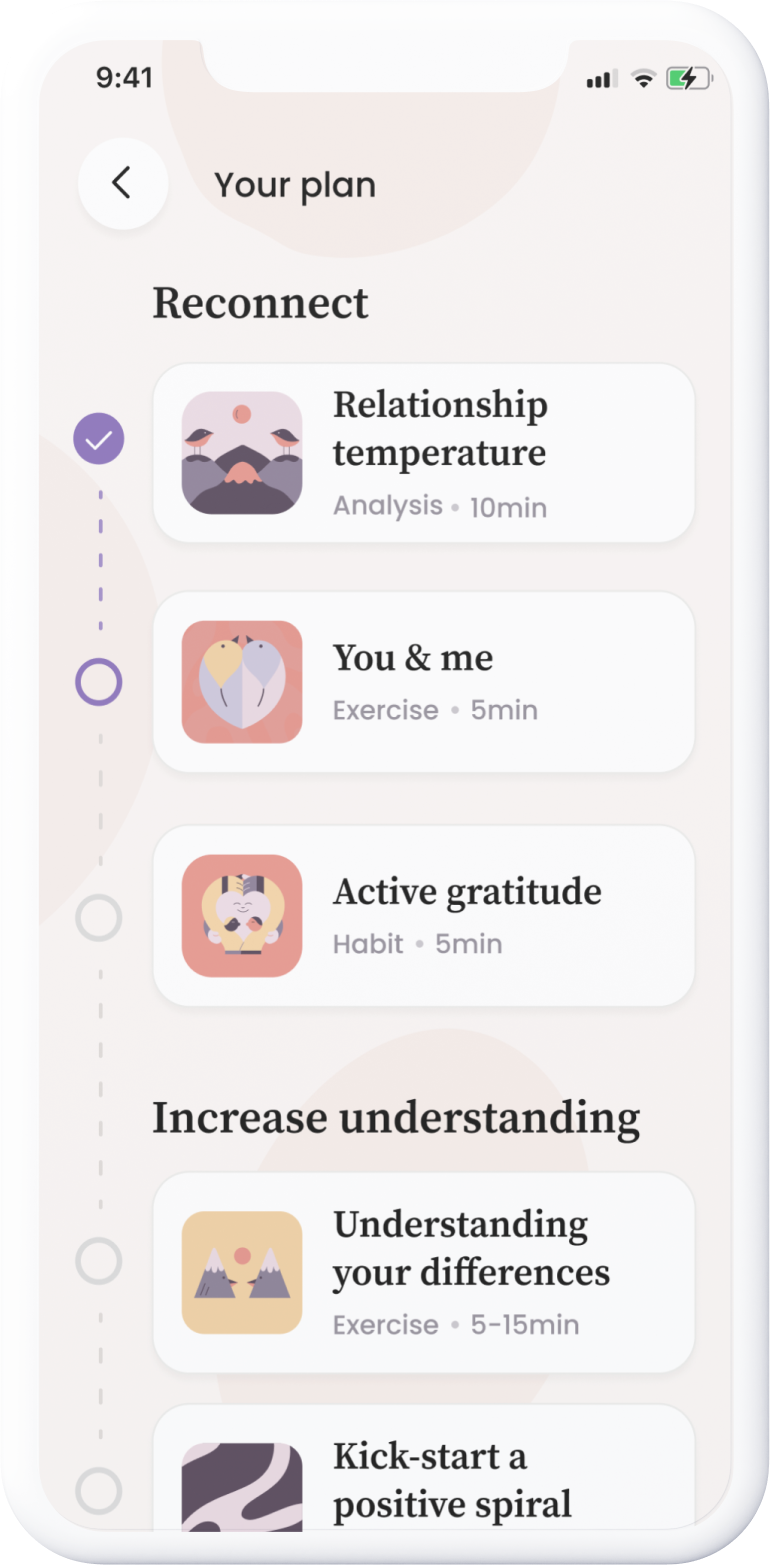
Do you have autism and a relationship? Or are you perhaps in a relationship with a partner who has autism? In this blog post, we'll explore the topic and how it’s living together. We'll describe some common relationship issues, how autism can affect your relationship and give you tips on how to handle them best.
Living with autism means difficulties with social interaction, communication, and flexibility in thinking and behaviour. There may also be a need for routines and structure to feel secure.
Autism can manifest in different ways, and the severity can vary. Some people with autism have difficulty interpreting and understanding non-verbal communication, such as body language and facial expressions. Others may have strongly limited interests and be more inclined to maintain routines and rituals.
Having autism affects all aspects of life, including your relationships. In relationships where you or your partner live with autism, there may be extra challenges to manage. To be diagnosed with autism, the symptoms must affect one's daily life.
It's important to remember that the challenges vary from person to person, and how autism can affect your relationships. Most importantly, you talk about it and find ways to handle them together.
4 Common challenges with autism and relationships
1. Difficulties with adaptation/flexibility
In a relationship, you let each other into your lives and need to adapt to each other's differences. It could mean that you need to make adjustments in your daily routines and it may not look the same as it did when you lived alone. Differences in individual approaches to spontaneity and changes can affect the relationship, which can lead to misunderstandings.
2. Communication difficulties
People with autism may have more difficulty understanding non-verbal communication, such as body language and tone of voice. This can cause confusion, so it's important to discuss how to communicate clearly. Individuals with autism can also have problems recognizing and communicating feelings and needs, which can impact the relationship.
3. Social situations and difficulties
Participating in social situations and maintaining relationships can be extra challenging. Being in a romantic relationship with someone also involves other relationships, including those with your partner's family and friends. Different social needs can make it hard to understand each other and fulfil these needs.
There may also be difficulties in reading social signals and understanding unwritten rules in social situations. This can also contribute to social situations being a bit tougher.
4. Sensory overload
People with autism may be sensitive to certain sounds, smells, lights, or textures. It's important for a partner to know because it can clearly affect how one feels in different environments. Sometimes it may be necessary to adapt the environment with consideration to these.
Combined, these challenges frequently add to the overall burden in life. This can result in more stress during your daily activities, or it may leave you completely drained after a challenging day at work. It can also make it difficult to be your best self towards your partner, perhaps the energy isn't enough to show love in the way you would like.
Do you have autism and a relationship?
Do you recognize yourself in the areas described above or are other things difficult for you?
Remember that you're not alone and that it's important for both of you to understand how your autism and symptoms affect your relationship. Your autism is part of who you are, and there are also positive sides to it! On a group level, for example, many with autism are honest, clear, and very loyal. How can your autism be an advantage for you?
Take some time to think about the following question: What's important for your partner to know about how you function in order to ensure the best possible time together? The next step is to tell your partner about it!
Partner with autism - navigating life together
As a partner to someone with autism, it can be difficult to understand things that you may not react to yourself. Maybe being sensitive to stimuli or having a great need for preparation for new situations. You might love surprise parties and spontaneous post-work dates, while your partner mostly feels stressed in those types of situations. It's important to check in with each other and ask what they appreciate and which situations are extra difficult.
- Clear communication. If your partner with autism needs clear and straightforward communication keep in mind and use simple language and be careful with your choice of words. Pay attention to your own body language and other non-verbal signals.
- Help with structure and predictable situations. If you have a partner with autism who is sensitive to changes, try to communicate changes as soon as you can. Remember that your partner might experience negative effects when unexpected or un controlled situations occur, causing stress.
- Open and curious exploration. The most important tip! Simply ask your partner, find out what's difficult, and what they need. For example, discover which stimuli are most difficult to handle, like avoiding restaurants with high sound volumes.
Autism and relationships – tips for making life together easier
Acceptance of each other's differences
We understand that it can be difficult at times, but it is crucial in all relationships. If you have a partner with autism, you will likely need to make adjustments based on this sometimes. If you have autism, whether your partner is non-autistic, it's important to adapt to their needs and personality. In addition to talking to each other, educate yourselves and find out how it can be for others.
Routines are the key for people with autism
A daily structure that works for both of you is one of the most important things that you can invest time and energy into. Remember that the point of routines is not for you to think more about everyday tasks, but LESS!
Having a schedule for tasks and reminders on your phone can help and evenly distribute responsibilities. But with that said, It's also important to have space to do things in your own way. Lower the bar in areas where they feel most challenging.
Understand your vulnerability as a couple
When does it get tough for you two specifically? When sudden changes occur or when you're in social situations? Work together to reduce vulnerability where it's possible. Perhaps making extra preparations when possible or occasionally engaging in separate activities (you might not need to be together in every social situation).
Ensure each of you gets the recovery you need
Take care of yourselves individually and your needs. What do you need to feel good? That also requires consideration!
Keep in mind that recovery doesn't necessarily mean just resting. Recovery can also involve fully engaging in an interest without interruptions. Make sure you help each other get what you need to feel good in life.
Get help to strengthen or solve problems in your relationship on your own
In the Ally Couples therapy app, you receive help and guidance in understanding relationship issues and working to solve them. The exercises in the app will help guide you towards building a stronger relationship. You use the app entirely on your own. Ally is developed by licensed psychologists Clara Zelleroth and Helga Johnsson Wennerdal to make the methods we work with in couples therapy more accessible to everyone.








